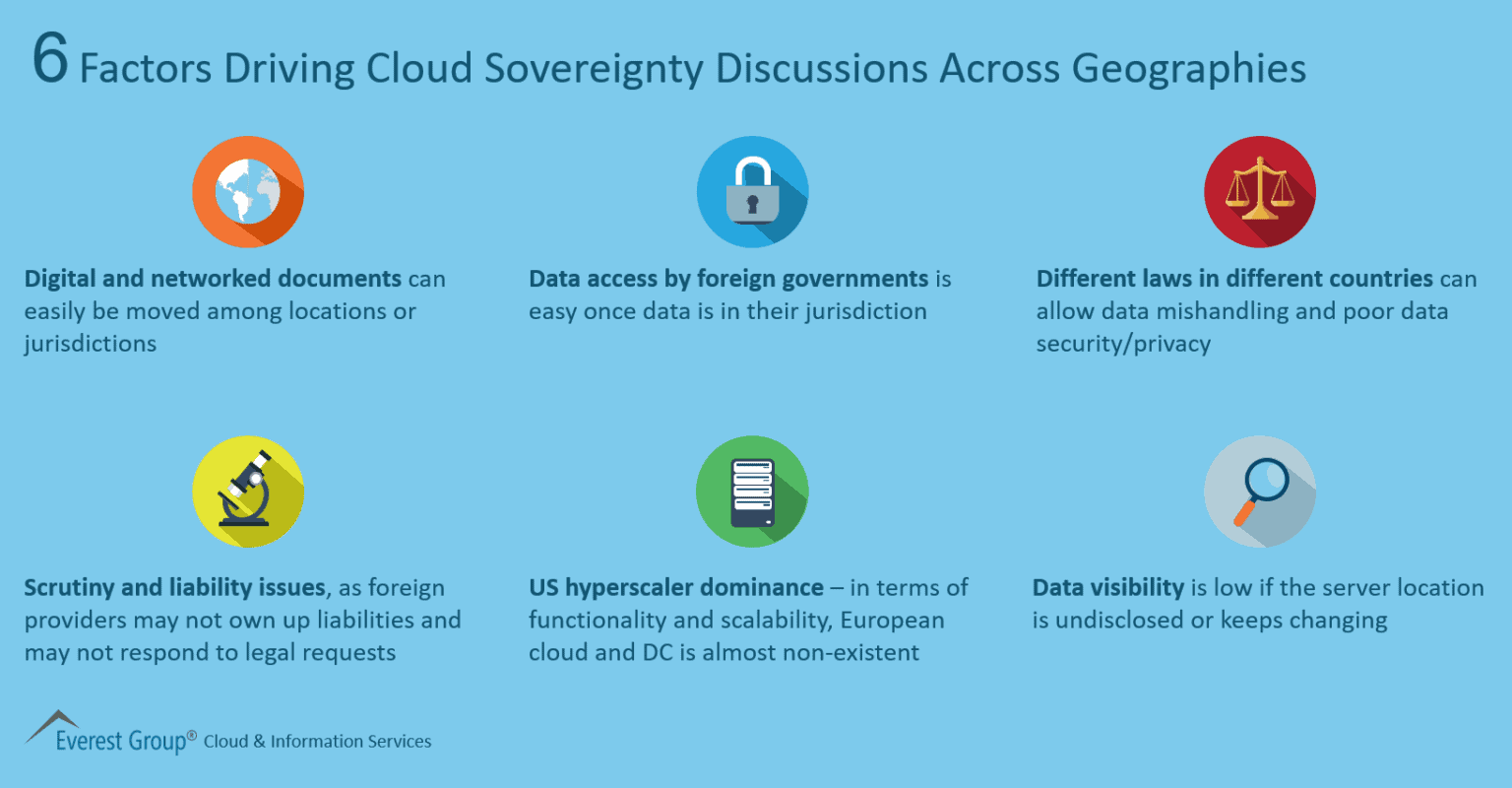Soaring Beyond the Clouds: Autonomous Strategies for Universal Obstacles

In an increasingly interconnected world, the complexities of governance, data security, and national sovereignty have pulled nations to seek solutions that are not only efficient but also align with their strategic interests. The concept of the sovereign cloud has come forth as a powerful response to these global concerns, allowing countries to exercise control over their data while fostering innovation and growth within their borders. As digital transformation accelerates, the sovereign cloud offers a channel for nations to build resilient infrastructures that adhere to local regulations and enhance national security.
With the increase of data privacy concerns and geopolitical tensions, the need for a sovereign cloud has never been more essential. This model allows governments and organizations to manage their data environments based on local laws and ethical standards, ensuring that sensitive information remains protected from foreign influence. As we investigate the dynamics of the sovereign cloud, we will discuss its implications for different industries, the technology behind it, and how it influences the future of digital sovereignty in a rapidly developing landscape. Understanding Sovereign Cloud
Sovereign clouds refers to cloud computing resources and services that are geographically and legally controlled by a specific nation or jurisdiction. This model allows governments and organizations to maintain increased oversight of their data and applications , ensuring compliance with local laws and regulations . As data privacy and protection issues have increased, the sovereign cloud has arisen as a essential solution for businesses operating in sensitive sectors, such as public sector, medical sectors, and financial services.
A key feature of sovereign cloud is the physical location of data storage facilities. These centers must reside within the borders of the country providing the sovereign cloud services. This localization minimizes the threat of foreign jurisdiction influencing or accessing sensitive information. Additionally, hostino.ma of local compliance frameworks helps businesses navigate the intricate environment of data protection laws, offering them the confidence that their data remains safe according to their country's regulations.
Furthermore , the rise of the sovereign cloud is driven by the increasing awareness of data sovereignty. Organizations want to safeguard their data from outside threats and potential misuse by foreign entities. By utilizing sovereign cloud solutions , governments and organizations can fortify their security posture while building trust among stakeholders. As more countries recognize the importance of data sovereignty, the adoption of sovereign cloud services is likely to increase, shaping the future of cloud computing on a worldwide scale.
Perks of National Cloud Solutions
National cloud solutions offer improved data sovereignty, guaranteeing that sensitive data remains within national borders and adheres to local regulations. This adherence is vital for organizations that deal with personal information, governmental data, or any data requiring stringent privacy measures. By hosting data in jurisdiction-specific environments, businesses can minimize the risk of unauthorized access from foreign entities and align their operations with local data protection laws.
Another important benefit is the improvement in performance and latency. By leveraging data centers located within the same country or region, businesses can achieve quicker response times and enhanced service reliability. This is particularly important for applications that demand real-time processing or where high availability is essential. The local infrastructure also allows for tailored solutions that suit the specific needs of organizations operating in varied industries, from finance to healthcare.
Additionally, sovereign cloud solutions foster trust among clients and partners. Organizations that prioritize data sovereignty signal their promise to protecting customer privacy and adhering with regulations. This faith can be a competitive advantage, drawing in clients who are increasingly aware about their data security and privacy. As businesses seek to set themselves apart in a crowded market, the reliability and security offered by local cloud providers become increasingly essential selling points.
Challenges and Future Paths
Despite the increasing acceptance of sovereign cloud solutions, there are several challenges that must be addressed to ensure their long-term success. One major hurdle is the complexity of compliance with varied regulatory frameworks across different jurisdictions. Organizations need to navigate a multitude of laws regarding data sovereignty, privacy, and security, which can frequently be conflicting. This complexity can create barriers for businesses looking to shift to a sovereign cloud model, as they must invest in resources and expertise to oversee these compliance requirements efficiently.
Another significant challenge is the need for interoperability between different sovereign cloud environments. As more nations and organizations establish their own sovereign clouds, the lack of standardized protocols may hinder data exchange and collaboration on a global scale. To fully unlock the potential of sovereign cloud solutions, there must be concerted efforts toward establishing shared standards and practices that enable seamless integration among various sovereign clouds. Without this, organizations may find themselves trapped within silos, stifling innovation and limiting the benefits of cloud technologies.
Looking ahead, the future of sovereign clouds is bright, with potential advancements in technology and policy paving the way for better solutions. The growing awareness of data privacy and the importance of local control is likely to drive further investment in sovereign cloud infrastructures. Moreover, as organizations more and more prioritize data security and regulatory compliance, the demand for sovereign cloud options is anticipated to rise. Collaborative efforts between governments, industry stakeholders, and technology providers will be crucial in shaping the evolution of sovereign clouds, ensuring they meet the needs of the digital economy while adhering to the principles of transparency and trust.

